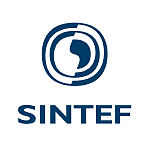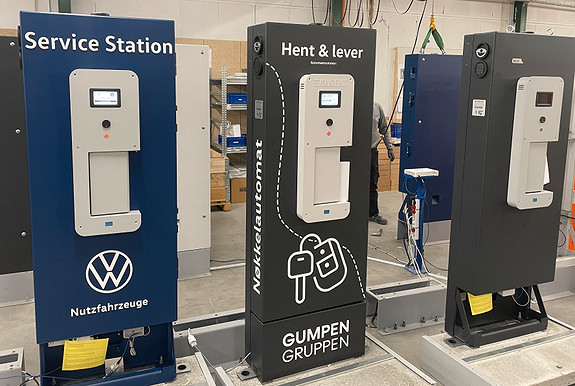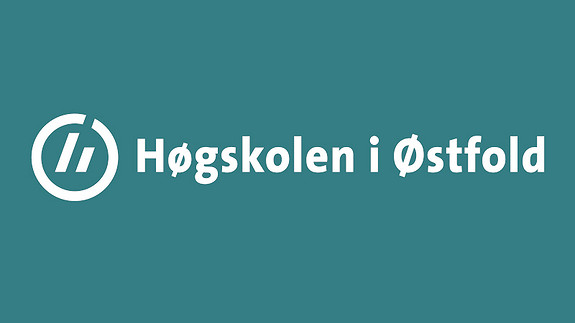
PhD Research Fellow in GIA modeling
- Arbeidsgiver
- Universitetet i Oslo
- Stillingstittel
- PhD Research Fellow in GIA modeling
- Frist
- 28.02.2025
- Ansettelsesform
- Prosjekt
Beskrivelse
Position as PhD Research Fellow in GIA modeling is available at the Njord Centre, Department of Geosciences, Faculty of Mathematics and Natural Sciences, University of Oslo.
The fellowship period is 3 years.
Starting date no later than October 1st 2025.
A fourth year may be considered with a workload of 25 % that may consist of teaching, supervision duties, and/or research assistance. This is dependent upon the qualification of the applicant and the current needs of the department.
No one can be appointed for more than one PhD Research Fellowship period at the University of Oslo.
Project description and work tasks
A fully funded PhD position is offered in the framework of the ERC StG project DYNAMICE – Exploring the impact of anisotropic viscosity on the interplay between ice and mantle dynamics. The candidate will be part of an international team with collaborators both in the University of Oslo, and outside.
About the DYNAMICE project: Ice and olivine, the main building crystals of ice sheets and the mantle, respectively, are two of the most anisotropic crystals on Earth. This means that individual crystals have preferred slip systems, along which it is easier to deform them. Depending on the deformation direction with respect to the mean orientation of crystals in both ice and mantle rock, the bulk viscosity can vary by a few orders of magnitude. Such variations in viscosity can greatly affect the flow of ice from ice divides to the sea, as well as the mantle’s viscous response to the unloading of deglaciated ice. As a result, spatial differences in ice texture can locally enhance or slow down ice flow, leading to some areas with faster than average ice loss and others where ice is stabilized. Moreover, in locations where ice loss is fast, and where mantle textures are favourably oriented, the viscous response of the mantle can be fast enough to uplift the ice and slow further ice loss, potentially stabilizing the ice sheet. Hence, anisotropic viscosity might play a critical role in the interplay between ice and mantle dynamics. In DYNAMICE, we will implement a framework to infer anisotropic viscosity from both ice and mantle textures in a numerical flow model. This will open new avenues for understanding solid earth and cryosphere dynamics, and their critical interactions that affect the future of Earth’s ice sheets.
The PhD candidate will explore the role of anisotropic viscosity on GIA (glacial isostatic adjustment) processes beneath the ice sheets in Greenland and Antarctica, with the main objective of determining the feedback between the anisotropic upper mantle and ice mass changes during periods of deglaciations. Overall, GIA of the mantle and the lithosphere causes surface uplift in the place of the ice melting and some subsidence further away. Topographic and gravitational changes due to GIA affect both glacial dynamics and regional sea level change. In areas of a locally weak upper mantle, the viscous part of GIA can happen on a decadal timescale, competing with the elastic response and possibly overtaking the ongoing GIA response to the last ice age deglaciation. Such low viscosity in the mantle can be the result of several mechanisms, including thermal weakening, hydration and/or the presence of melt, as well as weakening due to preferentially oriented anisotropic textures of mantle minerals (i.e., anisotropic viscosity). The candidate will use seismic anisotropy observations to map out regions of varying mantle textures beneath Greenland and Antarctica, and the geodynamic software ASPECT to numerically model GIA response to ice mass loss above areas with anisotropic mantle viscosity.
Qualifications requirements
The Faculty of Mathematics and Natural Sciences has a strategic ambition to be among Europe’s leading communities for research, education and innovation. Candidates for these fellowships will be selected in accordance with this, and expected to be in the upper segment of their class with respect to academic credentials.
Required qualifications
- Master’s degree or equivalent in Geophysics or related fields
- Foreign completed degree (M.Sc.-level) corresponding to a minimum of four years in the Norwegian educational system
- Experience with programming language (e.g. Matlab, Python)
- Fluent oral and written communication skills in English
Desired qualifications
The following is a list of skills are desired, but not required, for the position.
- Demonstrated knowledge of fluid dynamics and geodynamic processes
- Experience with geophysical and geological data processing and visualization, in particular experience with seismic anisotropy and ice loading history
- Skills in advanced computational methods. Knowledge of c++ programming language is particularly desirable
Language requirement
- Fluent oral and written communication skills in English
- English requirements for applicants from outside of EU/ EEA countries and exemptions from the requirements:
https://www.mn.uio.no/english/research/phd/regulations/regulations.html#toc8
Grade requirements
The norm is as follows:
- the average grade point for courses included in the Bachelor’s degree must be C or better in the Norwegian educational system
- the average grade point for courses included in the Master’s degree must be B or better in the Norwegian educational system
- the Master’s thesis must have the grade B or better in the Norwegian educational system
Candidates without a master’s degree have until 30 June 2025 to complete the final exam.
The purpose of the fellowship is research training leading to the successful completion of a PhD degree. For more information see: http://www.mn.uio.no/english/research/phd/
Personal skills
The successful candidate should:
• be able to work as part of a team, as well as conduct their work independently
• be enthusiastic, and have personal drive to take initiative
• have ability to communicate clearly and in a friendly and professional manner
• have personal drive towards outreach activities and public engagement
We offer
- Vibrant international academic environment
- Oslo’s family-friendly surroundings with their rich opportunities for culture and outdoor activities
- Good welfare schemes.
- Career development programmes
- Membership in the Statens Pensjonskasse, which is one of Norway's best pension schemes with beneficial mortgages and good insurance schemes.
- Salary in position as Doctoral Research Fellow, position code 1017, in salary range NOK from 536 200 - 575 400, depending on competence and experience. From the salary, 2 percent is deducted in statutory contributions to the State Pension Fund.
Read more about the benefits of working in the public sector at Employer Portal.
Inclusive worklife and diversity at UiO
Inclusion and diversity are a strength. The University of Oslo has a personnel policy objective of achieving a balanced gender composition. Furthermore, we want employees with diverse professional expertise, life experience and perspectives.
If there are qualified applicants with disabilities, employment gaps or immigrant background, we will invite at least one applicant from each of these categories to an interview.
We hope that you will apply for the position.
More information about gender equality initiatives at UiO can be found here.
Application
The application must be submitted as a single PDF and include:
- Cover letter - statement of motivation and research interests
- CV (summarizing education, positions and academic work - scientific publications)
- Copies of the original Bachelor and Master’s degree diploma, transcripts of records and
- Documentation of English proficiency
- List of publications and academic work that the applicant wishes to be considered by the evaluation committee
- Names and contact details of 2-3 references (name, relation to candidate, e-mail and telephone number)
Application with attachments must be submitted via our recruitment system Jobbnorge, click "Apply for the position".
When applying for the position, we ask you to retrieve your education results from Vitnemålsportalen.no. If your education results are not available through Vitnemålsportalen, we ask you to upload copies of your transcripts or grades. Please note that all documentation must be in English or a Scandinavian language. Foreign applicants should attach an official explanation of their University's grading system.
General information
The best qualified candidates will be invited for interviews.
Applicant lists can be published in accordance with Norwegian Freedom of Information Act § 25. When you apply for a position with us, your name will appear on the public applicant list. It is possible to request to be excluded from this list. You must justify why you want an exemption from publication and we will then decide whether we can grant your request. If we can't, you will hear from us.
Please refer to Regulations for the Act on universities and colleges chapter 3 (Norwegian), Guidelines concerning appointment to post doctoral and research posts at UiO (Norwegian) and Regulations for the degree of Philosophiae Doctor (PhD) at the University of Oslo.
The University of Oslo has a transfer agreement with all employees that is intended to secure the rights to all research results etc.
- Sektor
- Offentlig
- Sted
- Problemveien 7, 0313 Oslo
- Stillingsfunksjon
- Forskning/Stipendiat/Postdoktor, Ingeniør, Annet
- FINN-kode
- 391358175
- Sist endret
- 30. jan. 2025 12:21
Mer som dette



PhD Candidate Artificial Intelligence for Enhanced Cross-disciplinary Assessment for Learning


